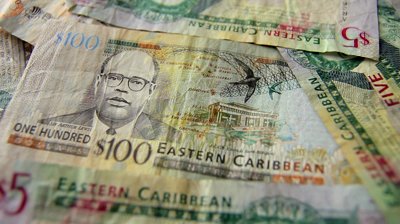Prime Minister Ralph Gonsalves on Monday presented to lawmakers Estimates of Income and Expenditure for 2017 of EC$976,943,437, a 7 per cent increase over the approved Budget for 2016.
The 2017 estimates is comprised of recurrent expenditure, inclusive of Amortisation and Sinking Fund contributions of EC$747,376,387 and capital expenditure of EC$229,567,050
The budget is financed by current revenue of EC$590,740,680 and capital receipt of EC$368,202,747, Gonsalves, who is also Minister of Finance told Parliament.
The 2017 current expenditure, exclusive of Amortisation and Sinking Fund contributions is EC$601.747 million.
Current revenue is EC$590.74 million. “As a consequence, there is a budgeted current account deficit of EC$11,700,291,” Gonsalves said.
The current revenue is 4.6 per cent or EC$26.1 million higher than the budgeted current revenue for 2016.
Revenue from taxes is expected to yield EC$505.6 million while non-tax revenue is estimated at EC$85.2 million
Gonsalves said that the improvement in revenue estimates for 2016 is reflective of the real economic growth projected for this year.
He said that in 2016, actual revenue collection amounted to EC$589.4 million or 4.4 per cent above the budgeted revenue for that year.
“Notwithstanding the strong revenue performance during the last fiscal year, we consider it prudent to remain conservative with our projections for 2017.”
Gonsalves said that one of the ways to assist in the management of the recurrent budget is to be conservative with projections in relations to tax revenues, make sure that tax collections are strong, and that, at the same time, ensure that there are saving on the operations of current expenditure.
The prime minister told lawmakers that tax revenues are expected to grow by 4.8 per cent, adding that growth in revenue intake from all major taxes are expected to contribute to this performance.
He further said that taxes on income is estimated to grow by 4.7 per cent; taxes on property by 9 per cent, taxes on international trade and transactions by 5 per cent, and good and services by 3.5 pre cent.
Of the EC$81.5 million expected from non-tax revenue, the main contributors are expected to be inflows from goods and services — EC$66.6 million and customs service charge – EC$42.5 million.
Gonsalves told Parliament that of the total revenue estimates to be collected this year, 78 per cent or EC$165.3 million is expected to come from taxes on good and services; taxes on international trade and transaction is expected to generate EC$149.7 million and taxes on incomes and profit, EC$145 million.
Recurrent expenditure in 2017 is expected to reflect a 4.5 per cent or EC$32 million year-on-year increase.
The 2017 package includes current expenditure of EC$601.7 million; amortisation of EC$121.6 million, and sinking fund contribution of EC$24 million.
“All three components of recurrent expenditure are estimated to increase in 2017 when compared with the 2016 budget as follow: current expenditure, 4.4 per cent; amortisation 4.2 per cent, and sinking fund 9.1 per cent,” Gonsalves said.
The prime minister said that the increase in the current expenditure for 2017 is as a result of an increase in compensation of employees by EC$3.9 million or 1.3 per cent; other transfers are budgeted to go up by EC$10.6 million or 10.1 per cent. Further, interest on loan payments are expected to increase by EC$5.08 million or 9.6 per cent.
The debate continues.






